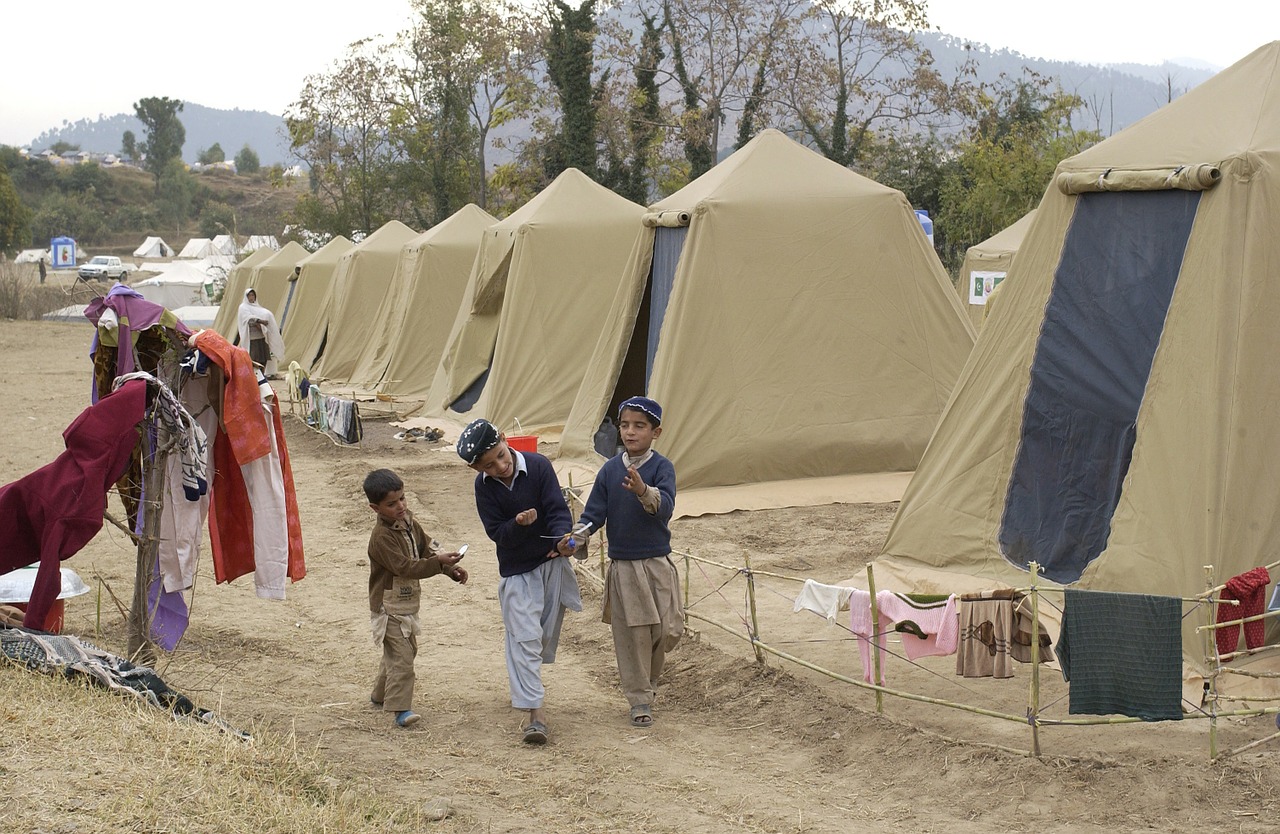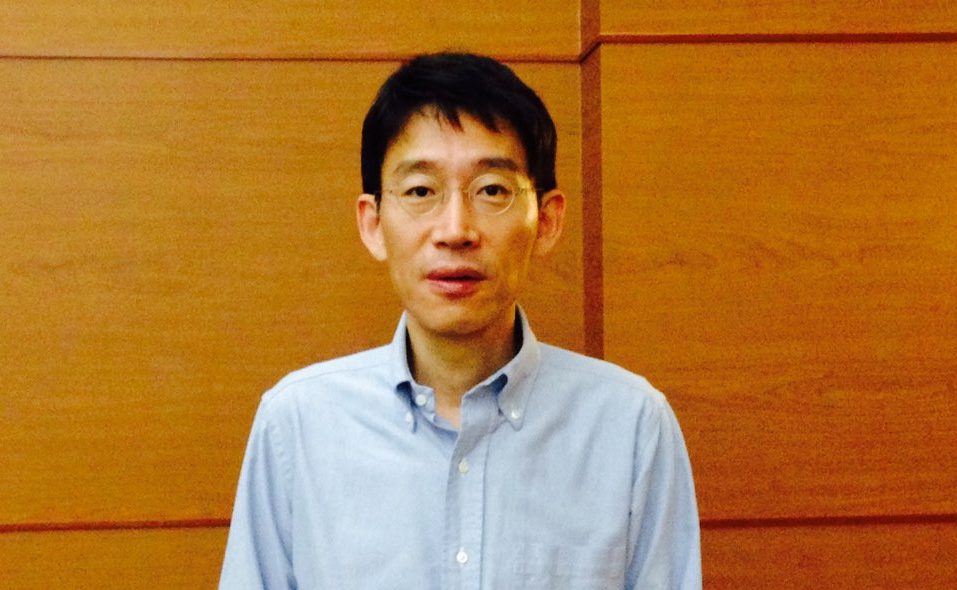It is easy to think in cliches, to resort to conventional wisdom. When academics, policy makers or military officials are asked to think about what ‘security’ means, the terms are often from traditional realist perspectives, involving state power, instruments of force, security from external threats.
Over the last two decades, however, a new approach to security has developed, one formally accepted by UN General Assembly resolution in 2012 – Human Security. The new approach is not without its detractors and certainly needs improvement, but it is a welcomed step towards broadening and deepening our understanding of security. It asks that academics as well as practitioners across disciplines shift away from looking at only states or institutions as referents of security. When we think about security, we should be looking at it as a problem of individual’s insecurities.

By Martegnan, with CC
NOVAsia interviewed Professor Shahrbanou Tadjbakhsh, a professor at Sciences Po, and former teacher at Columbia University. Professor Tadjbakhsh has been at the forefront of the human security movement, helping to develop it since she quit her position at the UNDP in 2003. Not only her fieldwork in Tajikistan during the civil war, but her own personal story as an Iranian who emigrated when she was young, and as someone who saw wars and underdevelopment throughout her career at the UN, lead her to become an avid proponent of human security.
Tell us a little about your background:
I’m Iranian, originally an American citizen but now a resident of France. I did soviet studies at Columbia for a PhD and then my post-doc in Tajikistan, and lived through the civil war that engulfed the country from 1992 to 1997.
I worked with UNDP in Central Asia, Eastern and Central Europe, and then in the Human Development Report Office in New York. I resigned in 2003 and first began teaching human security at Columbia.
I still teach this concept with the UN and write policy documents. Most recently, I’ve been applying human security to disaster risk management and conflict, and with a counterterrorism and radicalization focus since 2010. I wrote a book on regional security efforts around Afghanistan and another book which is a critique of peacebuilding from a liberal point of view. I also wrote, Human Security: Concepts and Implications – the first handbook on human security, published by Routledge.
Tell us where the concept of Human Security came from and how you came to it:
It was formed in 1994, when I was still working in post-soviet transitional countries, CIS [Commonwealth Independent States] countries which were all undergoing rapid transformation as a result of the transition out of communism. I witnessed how even in countries where there was no war, like in Tajikistan, people lost everything – their savings, their health, everything. When crisis hits, whether it is economic or war, people lose their security.
I was working at the UNDP Human Development Report Office in New York where this concept was actually coined, first in the Human Development Report and then under a Commission for Human Security chaired by Amartya Sen and Sadako Ogata. I worked with the Commission on their outreach programs in Central Asia and contributed to the preparation of their final report, and subsequently on the preparation of the UN Resolution at the General Assembly.
What I found compelling was that it was a concept that perfectly grabbed the feeling of insecurity of everyday people. It was dealing with the intersection of development and conflict, and taking on crisis at an individual level, shedding light on their everyday problems. For example, when I was working on the conflict in Tajikistan, I noticed how negotiations between the government and warring parties failed to take into account the role of everyday people in bringing about peace. They were not concerned with the effects these decisions were having on people’s everyday life.
The development projects that were implemented in conflict zones were neither sustainable nor relevant. In academia, concepts were too narrow and lacked connections with practical implications in real life.
Human security is not rocket science, it is common sense. It is an approach that puts into perspective people and their everyday fears beyond the security of nations. It puts the focus on the individual level, not the macrolevel. It touched me and my experiences too, having become a refugee who left my country and lived in many different ones throughout my life.
Could you try to briefly explain/sum up what Human Security is – in 40 or less words?
Human security is an approach that allows us to look at everyday insecurities – in the large sense of the word – from the perspective of those for whom it matters most. It is a people centered approach that looks at the relationships between different threats in everyday life.
Ok, now if you want more than forty words?
To add, empathy is an important part of the human security approach, one that cares about persons, not just structures and institutions. It tries to mainstream empathy in the work of institutions.
It is also about agency – interventions and policies should be really for people and by people. My work in the field all over has showed that local people, and people in general, already have the solutions; they know what must be done, but we don’t often include them in the project and policy making process.
Do you think Human Security is a response to/against traditional realist frameworks?
It’s another paradigm. The realist school looks at the state as the referent object of security. It supposes that once the state is secure, security will trickle down to the people. Realists are concerned about security from existential threats, and seek hard power as remedy.
Human security is an ethical and methodological rupture- security not of the state but also of individuals and communities; not just from traditional threats but also from other threats; and not just through traditional means like power and force, but through human rights and development. Communities impacted, directly and indirectly, may have different concerns than the state, or at least different ideas about solutions that should be taken into account. It does not debunk the state perspective, it just adds the human element. It rejects the idea of trickle-down-security.
Additionally, it is a question of what type of sovereignty we are talking about. Usually it is the Westphalian model – sovereignty against other states with the assumption of the social contract and that people will not rebel against the state as long as it protects them. Human security looks at the state and its responsibility from within, not from the international perspective, the Westphalian system. Human security argues that the sovereignty of the state is about the responsibility to provide, protect and empower its people.
For academia in East Asia, where Human Security is not really taught, in what ways could human security add to their studies?
There are two areas this concept could be interesting. First, when you are looking at conflicts between states such as North and South Korea, the approach allows us to look into the multidimensional impacts of conflicts on people and communities. Second, this approach gives us a lens to see ways that people, in both their action and inaction, can actually contribute to conflict and its resolution. Human security studies offer several modules that help analyze conflicts and resolutions in more dynamic, multifaceted ways.
Actually, Amartya Sen [one of the founders of human security] became more interested in the human security idea after witnessing the financial crisis in East Asia in ‘97. He wrote about how people become insecure during crises in different ways, depending on their assets, insurance and means of protection. Human security was developed to cover not just conflict but economic crises.
The approach allows us to examine things like the national budget, how much money is being spent on military instead of on improving the lives of the people. Studies should look at the human security problems of citizens within countries to gauge the correct proportional attention directed towards solving domestic insecurities rather than just international ones.
How do you apply Human Security to your counterterrorism work today?
Everyone is talking about how do we fight ISIS as an external enemy, but I ask myself, what are the internal issues that allow or force people to become radicalized? I see domestic factors and drivers of radicalization as just as important to the security of a nation as external threats.
- MY City – The Planet - January 23, 2018
- 70 Years of Two Koreas: The ’47 UN Vote For Elections - January 16, 2018
- Trade or No Trade: China’s DPRK Dilemma - June 5, 2017






